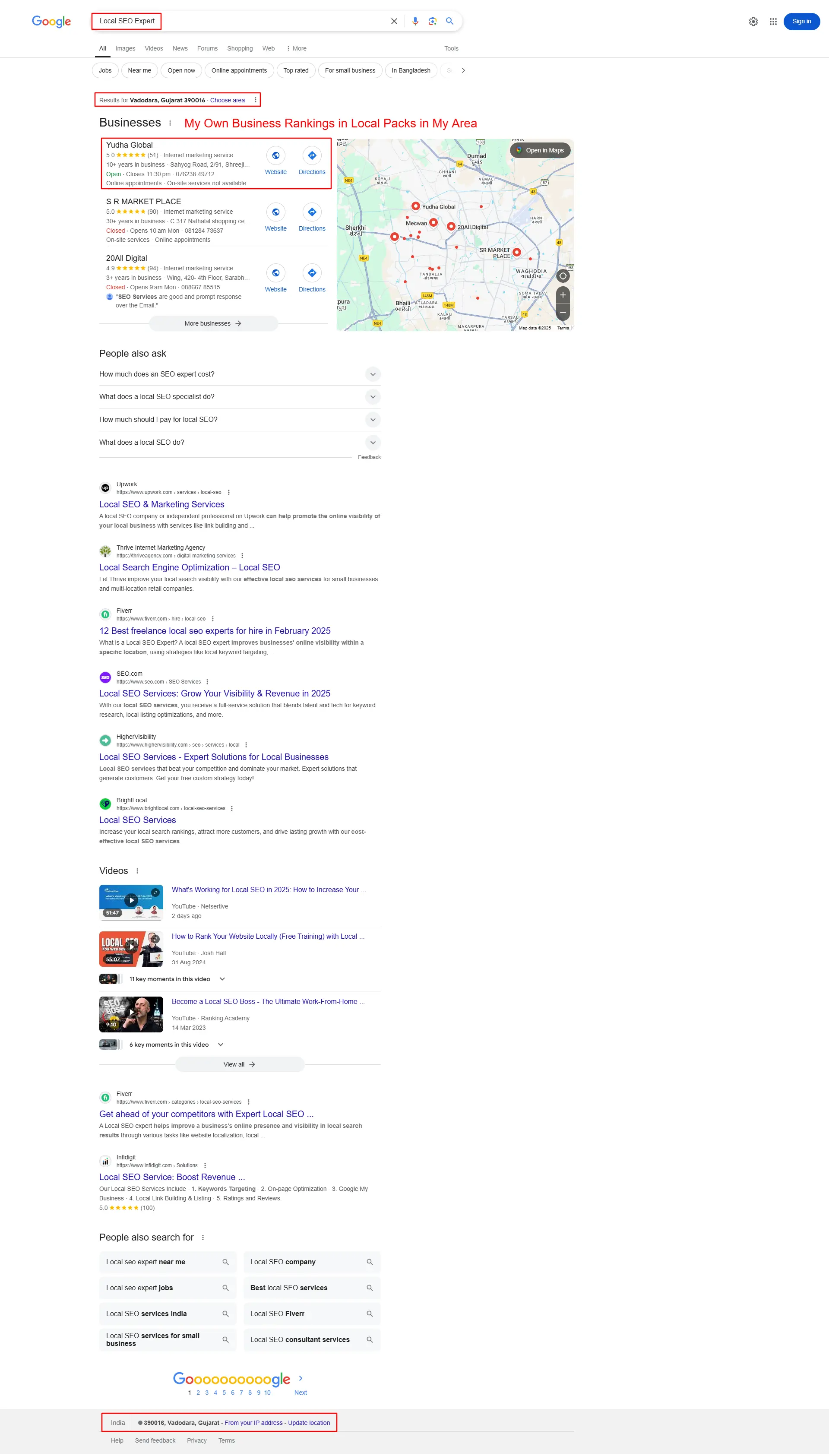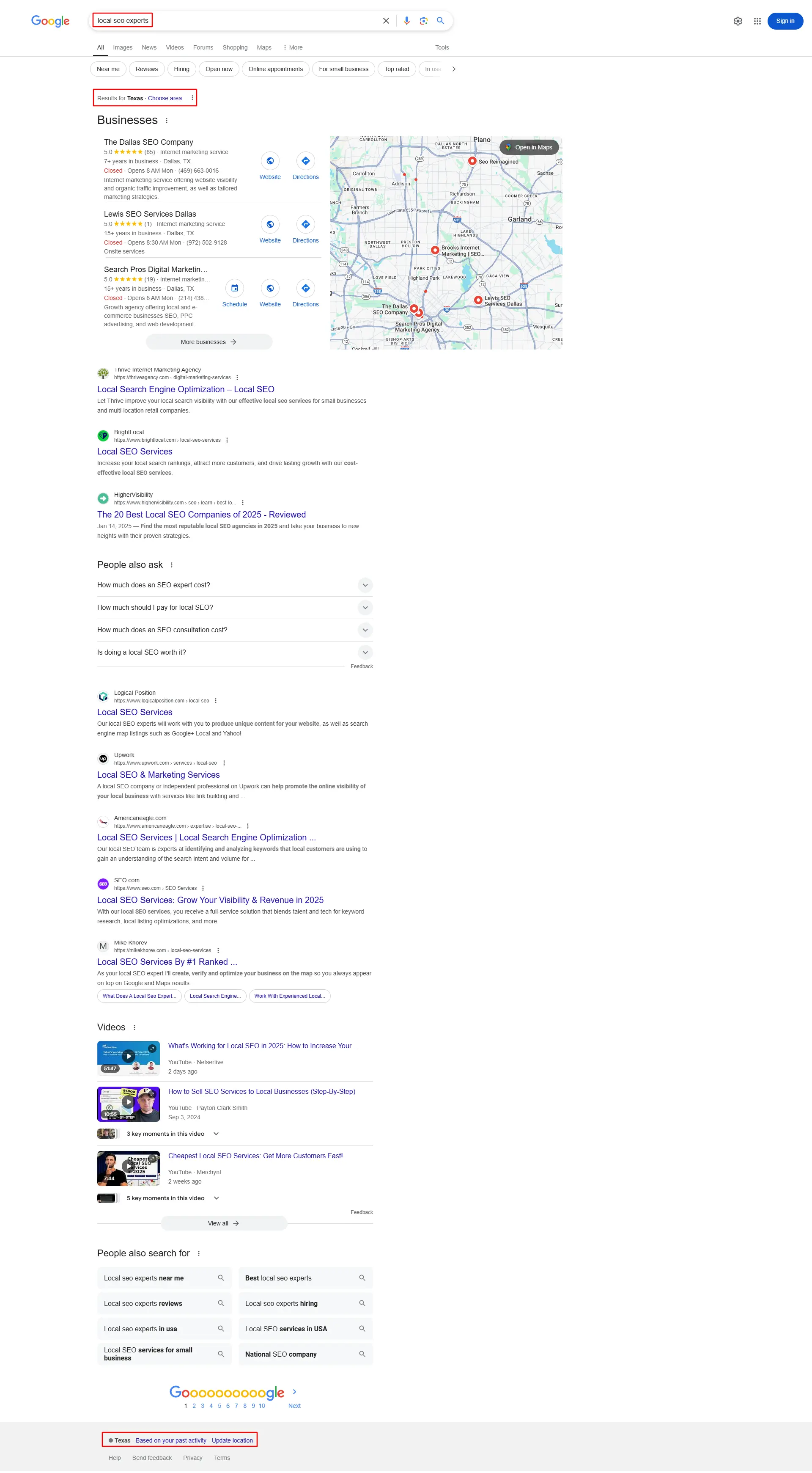How to Get Search Results from Other Countries: Expert Guide

Key Highlights
Accessing search results from other countries offers insights into international markets, competitor strategies, and user behavior in different regions.
Geolocation significantly influences search engine results, showing different rankings and websites based on the user's perceived location.
Various methods, including VPNs, specialized SEO tools, and browser settings, allow you to simulate searches from different countries.
Each technique has pros and cons, affecting accuracy, ease of use, and cost, requiring careful consideration based on specific needs and resources.
Businesses can tailor their SEO and content strategies for specific locations by understanding how search results vary globally.
Introduction to how to get search results from other countries?
Have you ever thought about how your website shows up in different countries? Or do you want to see how your website appears in Google search results for a specific searcher from a certain country? This is more than just a passing thought. Checking search results for a certain location can give useful results and important information to businesses, marketers, and researchers about optimization. It helps in shaping global SEO strategies, doing competitive analysis, and understanding user experience.
Understanding the Importance of Accessing Search Results from Other Countries
In our connected world, businesses with an online presence can reach many places. However, for search engine results, location is important in algorithms. Search engines aim to show the best results for their users. A big reason for this is the user's location.
When we look at search results from different countries, we can find trends that are unique to each area. We can also see popular platforms and what competitors are doing in those regions. This information is key for making focused marketing campaigns and improving your website content. In turn, this helps create a better user experience for people around the world.
The Impact of Geolocation on Search Results

At the center of how search results change based on location is geolocation. Search engines use different ways to figure out where you are, and your IP address is a key factor. Your IP address is like a digital address that shows your general location to websites and services.
When you search for something, the search engine finds your location by your IP address. It then changes the results to show what might be most relevant for that area. This means that two users searching for the same term in different countries will likely see very different results.
This geographic filtering aims to improve the user experience. For example, someone in Thailand searching for "restaurants" is probably more interested in local places than those in Italy. The search engine changes the results based on this.
Why Access to Global Search Results Matters
Understanding how geolocation, latitude, and longitude coordinates change search results in Google Chrome is not just a matter of curiosity. Looking at global search results gives a lot of useful information about market trends, how competitors work, and how users behave in different places. Businesses can use this information for market research, competitor analysis, and improving their SEO.
For example, if a company wants to grow in a new country, analyzing search results in that area can be helpful. It shows popular keywords, key industry players, and common search habits. This way, businesses can adjust their content and marketing to connect better with the audience in that country.
In the end, getting to know and adjusting to global search changes helps businesses reach a larger audience. This improves user experience and helps with success in the international digital market.
Preparing to Access Search Results from the United States: What You Will Need
To see search results from a different country, like the United States, you need to hide your actual location. This means making websites and search engines, including those using AI, believe you are somewhere else, usually by changing your IP address.
A common and effective way to do this is by using VPN services. VPNs help by creating a secure connection. They send your internet traffic through a server that is located in a different place, such as India. As a result, websites and search engines will only see the IP address of the VPN server. This changes how they view your location and lets you access different content, including search results that are specific to that location.
Essential Tools and Resources for Global Search Access
Beyond VPN services, there are many tools and resources to help you access and analyze search results from around the world. These tools differ in how complex they are, their accuracy, and their costs. This means they can meet different user needs and levels of technical skill.
For detailed SEO analysis and rank tracking, specialized SEO tools provide full solutions. With these tools, you can enter keywords and target locations. They give insights into rankings, how competitors are doing, and search volume data for those areas.

Also, some search engines have options in their search settings. These let you refine results based on location. While not as strong as SEO tools or VPNs, these built-in features are an easy way to adjust search results a bit.
Setting Up Your Workspace for Optimal Results
Optimizing your digital workspace is key for easily getting and studying search results from different countries. This means you need to pick the right tools, arrange your data, and refine your workflow to handle many location-based searches well.
The first important step is to choose the method that best fits your needs. Do you need a quick look at popular keywords in a specific country? Or are you doing a deep competitor analysis in various regions? The answer will help you decide if a VPN, an SEO tool, or changes in manual search settings are best for you.
Next, set up a system for keeping track of what you find. Use spreadsheets, project management tools, or specific SEO software to log rankings, spot trends, and monitor changes in search results over time. This organized way helps you get valuable insights from the data and make smart decisions based on your research.

5 Effective Methods for Getting Search Results from Other Countries
1. VPNs (Virtual Private Networks): By using a VPN service, you can mask your IP address and browse the web as if you were located in another country. This is a popular method for accessing localized search results that are not available in your region.
2. Specialized SEO Tools: Tools like Ahrefs, SEMrush, and Moz offer features that allow you to specify target locations for your keyword research and rank tracking. These tools provide in-depth insights into how websites are performing in different countries.
3. Analyzing Competitors and Targeting Keywords: Conduct a thorough analysis of your competitors across different regions to identify trends and opportunities. Use keyword research tools like Google Keyword Planner or Ubersuggest to target specific keywords that are popular in other countries.
4. Manual Search with Location Settings: Adjust your search settings and past search history for the search terms relevant to the country you want to target by changing your location on search engines like Google. This manual method gives you a direct view of localized search results, helping you understand how your website ranks in different regions when you include the relevant URL.
5. Monitor Localized SERP Features: Keep an eye on specialized search engine result page (SERP) features like local pack, featured snippets, and knowledge graphs in the countries you are targeting to ensure you get the most accurate results. This will help you understand user intent and preferences in those regions, allowing you to optimize your content accordingly for better visibility.
You can learn about a specific country's search results in different ways. Each method has its benefits and drawbacks. The best choice for you will depend on what you need, your skills, and the resources you have, including the tabs available for easy navigation on a PC.
Pros and Cons of Each Method for Obtaining Country-Specific Search Results
Pros and Cons of Each Method for Obtaining Country-Specific Search Results:
Specialized SEO Tools:
Pros: They provide detailed insights into website performance in different countries and offer advanced features for keyword research and rank tracking.
Cons: Can be expensive, may require some learning curve to use effectively.
Analyzing Competitors and Targeting Keywords:
Pros: Helps identify trends and opportunities and allows for targeted keyword research.
Cons: Time-consuming process, may not provide real-time data on search trends.
Exploring search results from other countries can offer valuable insights for businesses aiming to expand their reach globally. By tweaking location settings in search engines like Google, you can directly access localized results and gauge your website's performance across various regions.
Additionally, closely monitoring specialized SERP features such as local packs, featured snippets, and knowledge graphs in your target countries enables you to align your content with the preferences and intent of users in those regions, thereby enhancing visibility and engagement.
Which Method is the Most Reliable for Getting Accurate Search Results from Other Countries?
Determining the most reliable method for accurate search results requires evaluating various factors, including your budget, technical proficiency, and the level of detail required. For casual browsing and preliminary research, free options like adjusting search settings or utilizing a free VPN might suffice.
However, for comprehensive analysis and consistent accuracy, investing in a reputable SEO tool like Sitechecker with location-specific rank tracking proves most effective. These tools provide advanced features and reliable data, enabling you to make data-backed decisions using different methods for your international SEO and marketing strategies.
Methods | Reliability | Cost | Complexity |
Adjusting Search Engine Settings | Low | Free | Easy |
Free VPN | Medium | Free | Easy |
Paid VPN | Medium to High | Paid | Easy |
Specialized SEO Tools | High | Paid | Medium to High |
Conclusion
Accessing search results from other countries is important for a worldwide online presence. When you understand how geolocation affects this, you can use the right tools to reach more people and learn about different market trends.
Each method has its pros and cons. But keeping things consistent is crucial for getting reliable results. Take advantage of the chances that come with international search results to improve your business strategies.
If you need help with optimizing your global search approach, just reach out for expert advice. Happy searching!
FAQ About Multi-Location Search Results
How Can I View Google Search Results for Different Locations?
You can see Google Search results for different places in a few ways. You can change the settings in your Google account. You can also use a VPN. Another option is to use the Google Ads Preview tool.
What Are the Best VPNs for Accessing US Search Results?
Some of the top VPNs for getting US search results are ExpressVPN, NordVPN, and Surfshark. They have many US servers. This helps make sure you have a strong connection and quick speeds.
Can I Use the Google Ads Preview Tool to View US Search Results?
The Google Ads Preview Tool allows you to see search results in the US. This tool gives you a look at both organic search results and paid rankings. It does this by entering your target keyword into the search bar without changing any data from your ad campaigns.
Are search results different in different countries?
Yes, search results are very different in various countries, including Canada. Search engines focus on showing the best local search results. They do this based on where you are and the language you use.














Comments